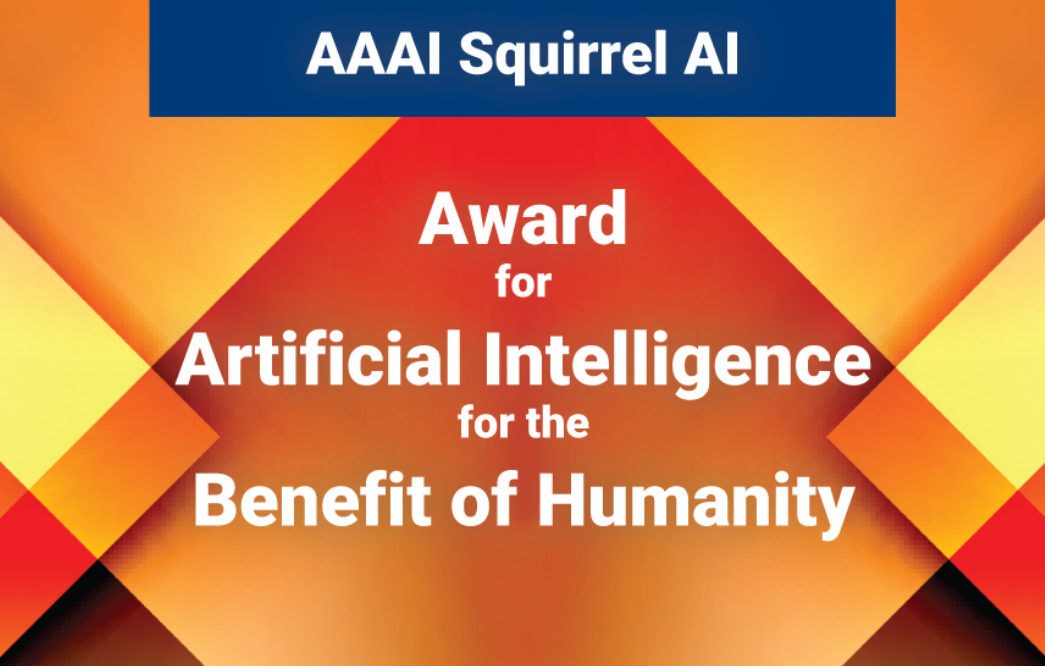
ΑΙhub.org
AAAI Squirrel AI Award for Artificial Intelligence for the Benefit of Humanity

The AAAI Squirrel AI Award for Artificial Intelligence for the Benefit of Humanity is a new prize, to be awarded for the first time at the Association for the Advancement of Artificial Intelligence (AAAI) conference in February 2021. It recognizes positive impacts of artificial intelligence to protect, enhance, and improve human life in meaningful ways.
The award will be an annual event and is accompanied by a prize of $1,000,000 plus travel expenses to the conference. The award is administered by AAAI, with support from the European Artificial Intelligence Association (EurAI) and the Chinese Association for Artificial Intelligence (CAAI). Financial support for the award is provided by Squirrel AI.
The deadline for nominations is May 24, 2020 and you can find the online nomination form here.
Candidates may be individuals, groups, or organizations that are directly connected with the main contribution stated in the nomination. Qualifications or technical knowledge in artificial intelligence are not requirements for nominations. The emphasis is on the significance and impact of the work.
The award will be judged by a prestigious committee:
- Yoshua Bengio is professor in the Department of Computer Science and Operations Research at the Universite de Montreal. He was a joint winner of the 2018 ACM A.M. Turing Award.
- Tara Chklovski is CEO and founder of global tech education non-profit Technovation (formerly Iridescent).
- Edward A Feigenbaum is Kumagai Professor of Computer Science Emeritus at Stanford University. He won the 1994 ACM Turing Award
- Yolanda Gil (Award Committee Chair) is Director of Knowledge Technologies at the Information Sciences Institute of the University of Southern California, and Research Professor in Computer Science and in Spatial Sciences. She is the current President of the AAAI.
- Xue Lan is Cheung Kong Chair Distinguished Professor and Dean of Schwarzman College, and Dean Emeritus, School of Public Policy and Management in Tsinghua University.
- Robin Murphy is the Raytheon Professor of Computer Science and Engineering at Texas A&M and directs the Center for Robot-Assisted Search and Rescue.
- Barry O’Sullivan holds the Chair in Constraint Programming at University College Cork in Ireland. He is the current President of the European AI Association
To find out more visit the AAAI website.
tags: AAAI, AAAI2020










